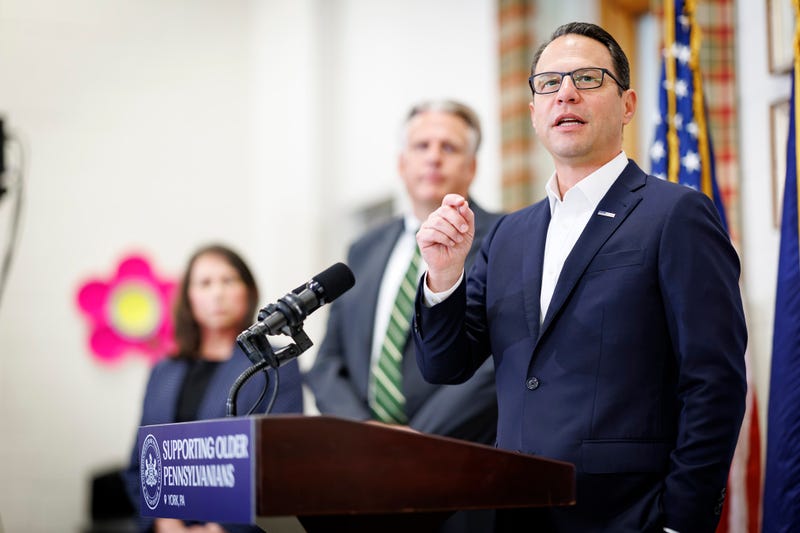
HARRISBURG, Pa. (AP/KYW Newsradio) — Gov. Josh Shapiro and Pennsylvania’s politically divided Legislature missed the legal deadline to pass a budget for the new fiscal year, amid closed-door talks to try to produce a compromise on a spending plan.
Without the Democratic governor’s signature on a new spending plan, the state loses some of its spending authority starting Tuesday, particularly on discretionary payments, such as those to vendors, counties, public schools and grant applicants.
The impact of such missed payments generally takes until August to be felt by schools and counties.
The biggest issues swirling around budget talks are how to absorb a massive increase in Medicaid costs and a Republican push to regulate and tax tens of thousands of slot machine-like “skill” games that are popping up everywhere. Meanwhile, top priorities for Shapiro are boosting funding for public schools and public transit agencies.
Shapiro said at a news conference Monday that talks between top lawmakers went through the weekend and that he anticipates negotiators will agree on a plan “very soon.”
“We respect one another and we respect what each party has to bring back to their constituents, back to their caucuses, back to the communities that they represent,” Shapiro said. “I'm determined to help everyone find a way to have wins for their communities.”
Shapiro proposed a $51.5 billion plan for the 2025-2026 fiscal year beginning July 1. It would increase total authorized spending by 9% for state operations, or by about $3.8 billion, including a $230 million request for the current year’s spending.
The proposal also has a more than $5 billion shortfall. The governor wants to use Pennsylvania’s cash reserves to fill the deficit, but Republicans in Harrisburg say that’s only a short-term fix and would lead to a financial crisis or tax increases in the future.
“We believe that the number one way to get ourselves out of what we're facing the next couple of years is through economic growth. We've talked about energy production and our regulatory environment. We've talked about benefits, integrity and curbing the cost moving forward,” said state Rep. Jessie Topper, the House minority leader.
“We have a demographics issue in Pennsylvania, we know that, and we have to make sure that our public policy during this time, as we talk about the budget, reflects the need for change in that area.”
The Legislature has been unable to agree on a plan to legalize marijuana and to regulate and tax skill games, which were two key drivers of Shapiro’s budget proposal.
Meanwhile, mass transit funding continues to be off the rails, as rural lawmakers are concerned their regions are being ignored.
In a budget stalemate, the state is still legally bound to make debt payments, cover Medicaid costs for millions of Pennsylvanians, issue unemployment compensation payments, keep prisons open, and ensure state police are on patrol.
All state employees under a governor’s jurisdiction are typically expected to report to work and be paid as scheduled during a budget stalemate.
Under the state Constitution, the budget must be balanced. For Shapiro, it will be his third straight budget that failed to get across the finish line by the legal deadline of July 1.
